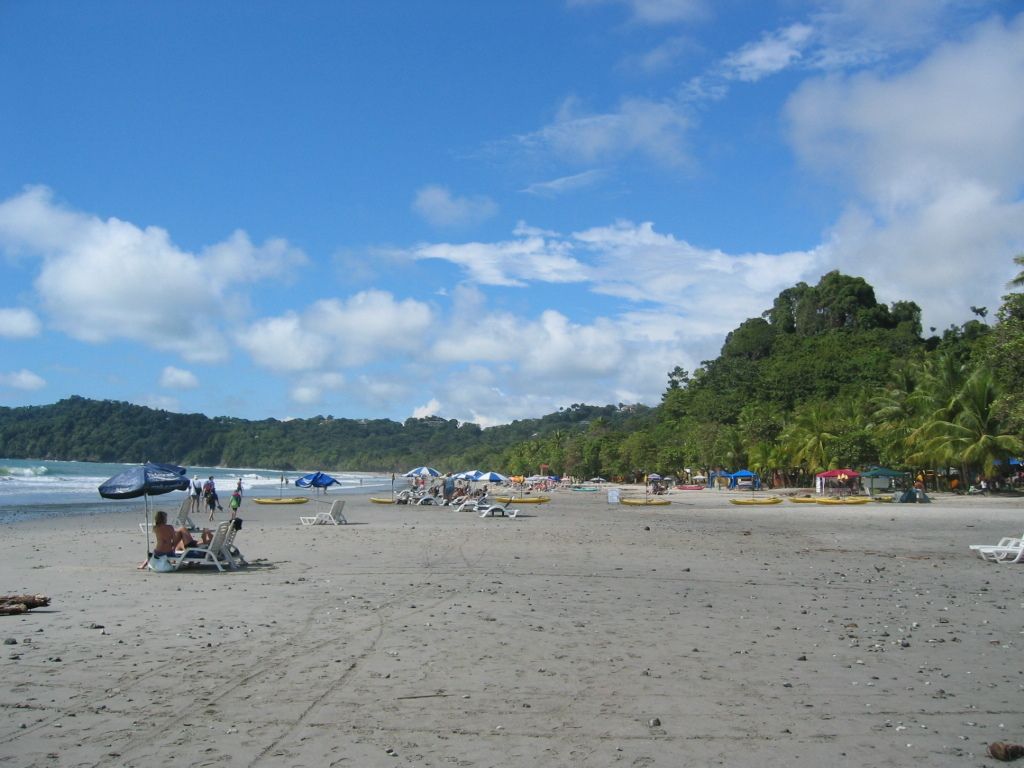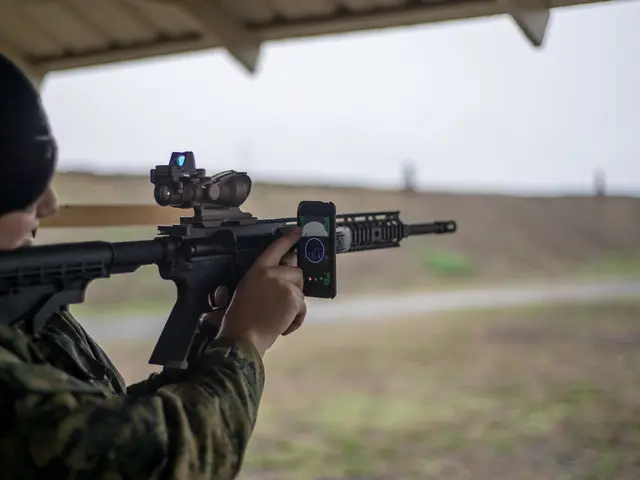Disruption of internet impedes a Gaza resident's receipt of Israeli defense alerts
Internet Woes in Gaza Threaten Civilian Safety
In a nail-biting twist, the ongoing internet blackout in Gaza has left residents in the lurch, with limited access to crucial warnings from the Israeli military, as evidenced by United Nations humanitarians on June 13, 2025.
An alarming military map, marked with drippy red, seemingly maps out a combat zone for civilians to shy away from—appearing to engulf most of the strip. The red-marked area was Israel's designated combat zone, as per their latest announcement.
The UN Office for the Coordination of Humanitarian Affairs (OCHA) reports that Gaza's internet and data connectivity took a hit following the severance of the last fiber-optic cable serving central and southern areas on June 12, amid escalating hostilities. "Restoring connectivity is urgent," OCHA underscored.
Ads
Struggling to make contact with their humanitarian partners, the Gaza folk are pinning their hopes on the tireless efforts of telecommunications experts who have banded together to mend Gaza's battered fiber-optic infrastructure. Heartbreakingly, the Israeli authorities have denied more than 20 requests to carry out such repairs since April.
As the outage enters day four, partners find themselves in a fix, unable to communicate or coordinate response activities. People in need languish in isolation, bereft of the information vital for receiving life-saving support and emergency services. The agency insists upon the immediate repairs' critical importance.
Ads
On a grim note, OCHA also highlights the ongoing fuel blockade, now nearing the 100-day mark. Adequate fuel supplies are indispensable to sustaining vital services in Gaza, including intensive care units and critical health, water, and sanitation operations. Moreover, fuel is necessary to power generators essential for telecommunications equipment.
One by one, Israeli authorities have thwarted 18 United Nations attempts to coordinate humanitarian missions seeking to bolster Gaza's population. According to OCHA, eight missions were unsuccessful, four more were thwarted due to security or logistical concerns, while the remaining six finally saw the light of day in the form of successful relocation of staff.
A desperate race against time, food aid distribution to Gaza's ravenous denizens remains a critical challenge. Under-Secretary-General for Humanitarian Affairs and Emergency Relief Coordinator, Tom Fletcher, stated that needless civilian killings and injuries, whether they're seeking food or delivering it, are unacceptable.
On June 12, Fletcher reported that UN convoys transporting humanitarian aid have fallen prey to armed Palestinian groups, jeopardizing staff and drivers. Hungry civilians attempting to access limited assistance have been met with hails of bullets, crushed under the burden of aid trucks, or stabbed during food distributions.
Starving civilians have relayed firsthand accounts of Israeli forces firing at them, particularly near the distribution hubs of the newly established Gaza Humanitarian Foundation (GHF). The GHF issued a statement on June 13, reporting that associates assisting in food distribution at their centers—approved by Israel and sponsored by the United States—were slain, injured, or captured by Hamas.
As starvation looms, Fletcher warns, "Without immediate and massively scaled-up access to the basic means of survival, we risk a descent into famine, further chaos, and the loss of more lives." Amid these harrowing circumstances, humanitarians implore for the right to carry out their lifesaving work unfettered.
- The ongoing internet blackout in Gaza has not only affected the civilian's access to crucial warnings from the Israeli military, but also their ability to stay informed about general news, such as health updates, crime-and-justice reports, and political developments.
- The denial of repair requests for the damaged fiber-optic infrastructure by the Israeli authorities has further complicated the situation, making it difficult for residents to access critical information, including emergency services and accident reports.
- The ongoing fuel blockade is another pressing concern, as it impacts not only the functioning of intensive care units and critical health services, but also the powering of generators essential for telecommunications equipment, which could have implications for the flow of information in Gaza, particularly during times of war-and-conflicts.








